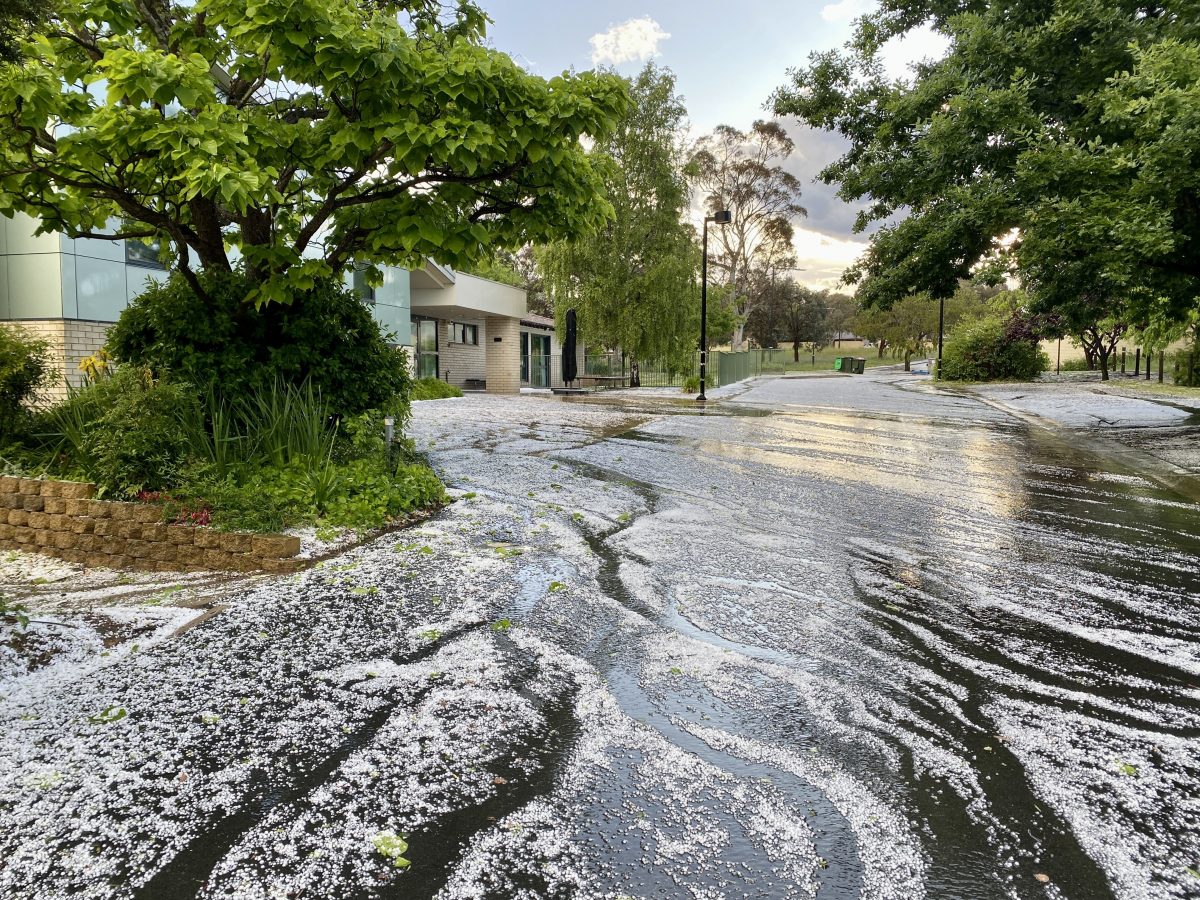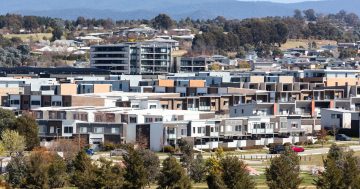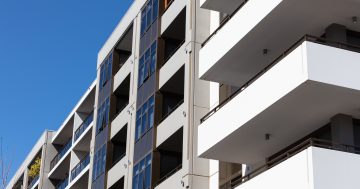
Canberra is no stranger to freak hail storms and inclement weather. Photo: Region.
Astronomic increases in insurance premiums, declining insurance industry competition in the local market and risk hyper-aversion are putting strata managers in a tight spot, according to the president of the industry’s peak organisation.
Strata Community Association (SCA) ACT president Shelley Mulherin said while body corporate fees for residents currently remain largely unaffected, strata managers are operating in “an increasingly difficult environment” in securing the relevant insurance required by ACT legislation.
“Strata managers can be left attempting to explain to owners corporations and executive committees that premiums are increasing and that what has historically been a straightforward process of placing a policy – wherein the manager would seek to gather several quotes and make a recommendation to an owners corporation – is simply no longer the case,” she said.
“There’s great difficulty procuring policies in the current market for certain buildings and for increasing numbers of them.
“We have members being offered limited three-month policy terms on inflated premiums over the previous period and, with respect to insurers, strict conditions being placed on remediation works that might be live, even where those works are relatively minor in nature.”
Ms Mulherin said, following the impacts of extreme weather, there was a growing awareness that a portion of strata buildings in the territory presently required some amount of defect rectification, which were perceived risk factors for insurers.
“Insurers seem to be taking an extremely risk-averse stance where there are any defects or even minor claims having been made by owners corporations,” she said.
“The concern for the SCA is that we want our owners to have access to reasonably priced policies in a competitive insurance market.
“We also want to educate our owners and the broader strata sector that this change appears to be occurring, and we are concerned that owners corporations are having to eat into their funds to meet what appears to be pretty steep increases in premiums.
“In the worst case, this could leave owners low in funds for unforeseen maintenance or needing to raise urgent levies.”

Strata Community Association ACT president and Thomson Geer law firm partner Shelley Mulherin said procuring the requisite insurance policies was no longer straightforward for strata managers. Photo: Thomson Geer.
Vantage Strata Group General Manager Jarrod Smith confirmed insurance premium hikes were hitting strata managers hard, and emphasised the importance of using a broker in the current climate.
“They will play a critical role in seeking appropriate terms for insurance coverage,” he said.
Allinsure director Peter Chamberlain added that Canberra’s recent track record for hail and thunderstorm damage, along with the bushfires from 20 years ago and the more recent Black Summer bushfires, had played a significant role in Canberra’s high risk profile.
“Between all the natural disasters we’re certainly seeing large changes in appetite and capacity for insurers concerning inclement weather,” he said.
“It’s significantly changed the insurance rating capacity for property insurance, particularly for large strata and commercial properties.”
In addition to increased premiums, Mr Chamberlain said it was now common practice for insurers to tack “imposed excess” (additional excess) onto policy conditions, with storm and water damage often having their own conditions.
Claims were also taking much longer to process as insurers took a “far more thorough approach to investigating and considering claims and cost of repairs than ever before”.
Few insurers were willing to provide quotes for existing defects, irrespective of a plan to rectify or additional conditions. This is due to the majority of losses suffered by stratas being related to water damage, which largely occur as a result of these outstanding defects.

Allinsure director Peter Chamberlain said inclement weather has significantly impacted Canberra’s high risk profile. Photo: Michelle Kroll.
In particular, Mr Chamberlain said there would be “next to zero appetite from insurers” to take on the risk relating to existing combustible cladding issues unless there are imminent works commencing to rectify the same.
“Insurers are far more choosy about what risks they want to insure and what terms they’re going to offer for that particular risk,” he said.
“We’ve got more claims today than we’ve ever seen.”
Mr Chamberlain said there was less competition in the market as well, and for now all clients could do was ensure their brokers were working hard to “provide them with quality advice whilst presenting their risk accurately and in the best possible light”.
“We’ve certainly seen a contraction in the market over the past three to five years. We’ve seen one strata insurer leave the market entirely recently,” he said.
“It’s typical fluctuation. When things are hard with large amounts of claims we see capacity leave the market and when insurers start to make profits again, it will recover.
“I think we can expect to see a tough market for the next 18 months to two years at this stage.
“In the meantime, it’ll come down to the job your broker has done in getting a quantity surveyor report and risk survey for the insurance evaluation and making sure they’ve gone to the market far and wide to advocate for you to get you the best possible outcome.”




















